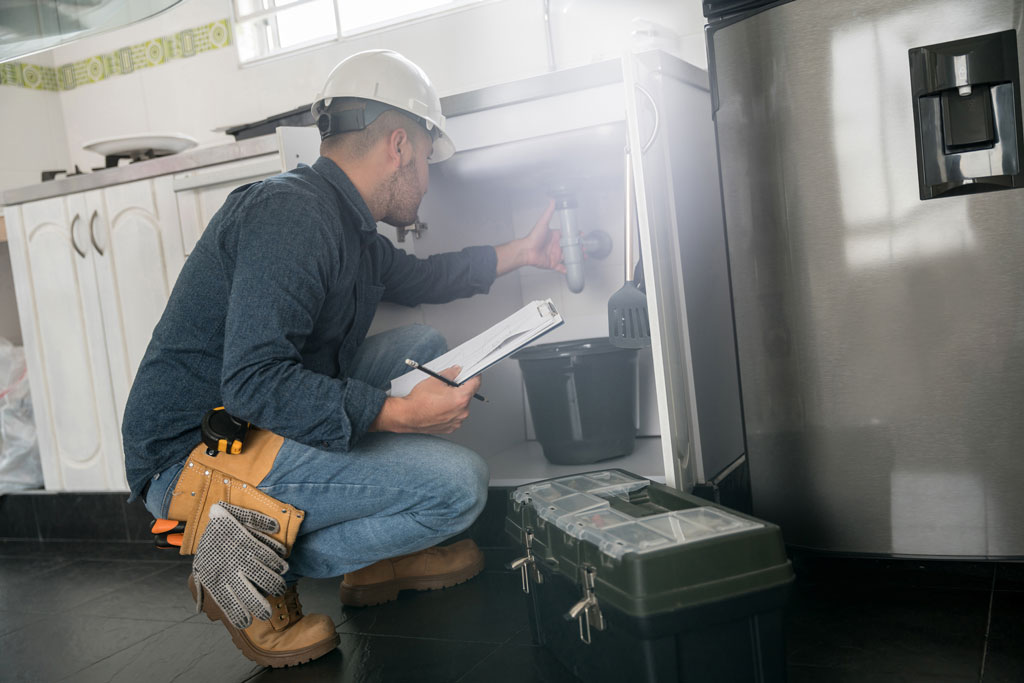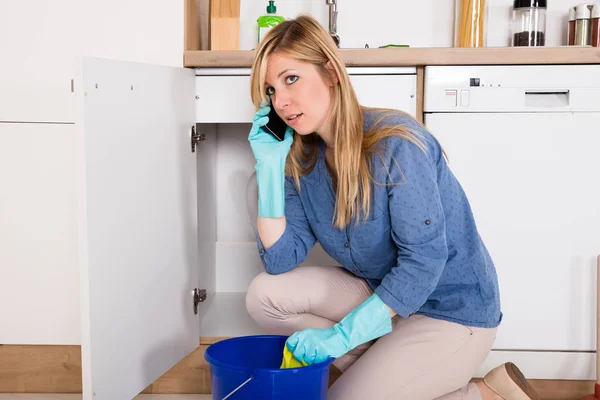Urgent Plumbing Fixes to Apply Until Specialist Help Arrives
Urgent Plumbing Fixes to Apply Until Specialist Help Arrives
Blog Article
Just how do you really feel about What to Do While Waiting for an Emergency Plumber?

Pipes emergency situations can strike at any moment, causing stress and possible damages to your home. Whether it's a burst pipeline, a clogged up drain, or a leaky faucet, knowing just how to handle the situation till a professional plumber gets here can save you from further difficulties. This short article supplies vital emergency pipes suggestions to help you alleviate damage and reclaim control throughout a plumbing situation.
Shut off the Water Supply
The primary step in any pipes emergency is to shut down the water system. For localized concerns, such as a dripping faucet or toilet, switch off the valve near the fixture. When it comes to a major leak or ruptured pipe, locate your home's major water shut-off valve and turn it off quickly. Understanding the location of these shutoffs beforehand can conserve important time during an emergency situation.
Address Little Leakages with Temporary Repairs
Tiny leaks can promptly become substantial problems if left untreated. Use these momentary repairs till professional aid arrives:
While these solutions aren't permanent, they can assist decrease water loss and damage.
Unclog Drains Securely
A clogged up drain can be a discouraging and untidy concern. Here's exactly how to tackle it:
If these techniques do not work, prevent utilizing too much force, as it may aggravate the clog.
Take Care Of Overflowing Toilets
An overflowing bathroom can trigger instant turmoil. Below's what you should do:
Shut down Your Hot Water Heater
In particular emergency situations, such as a burst pipe, it's wise to shut down your hot water heater. This stops overheating or damage to the unit when water quits moving. Shut off the power supply to the water heater (electric or gas) and let it cool to prevent prospective risks.
Temporarily Quit a Ruptured Pipe
A burst pipeline can cause considerable water damage in mins. To alleviate the issue:
Call a professional plumber quickly to attend to the problem completely.
Deal With Frozen Pipes Thoroughly
In colder environments, frozen pipelines are a typical emergency. If you presume a frozen pipeline:
Avoid Additional Damages
Taking quick activity to reduce damages can save you money and time in the long run. Below's how:
. Have an Emergency Pipes Kit
Prepare a fundamental pipes emergency set to take care of minor problems properly. Your kit must consist of:
Having these devices on hand can make a considerable difference in your capability to handle emergency situations.
Know When to Call a Specialist.
While quick fixes can aid momentarily, specific pipes issues require instant expert focus. Call a plumbing if:.
Quickly calling an expert makes certain the problem is settled appropriately and protects against more difficulties.
Verdict.
Pipes emergency situations can be frustrating, yet with the right knowledge and tools, you can manage the situation effectively until help arrives. By turning off the water supply, addressing tiny leakages, and making use of short-lived solutions, you can decrease damages and maintain your home safe. Keep in mind, these ideas are short-term services; always speak with a certified plumber to handle the root cause of the trouble. Prep work and fast thinking are your best allies in any pipes emergency situation.
8 Helpful Tips for Managing Plumbing Emergencies at Home
If your plumbing system hasn’t failed once, wait for it because almost everyone has a story to tell. Sometimes, it could be simple emergencies such as a leaking pipe, a blocked cistern, or even a big burst pipe. In situations like this, you need to have some handy tips to save you some money and from possible damages.
Take care of minor issues early.
Sometimes, you could have avoided an emergency by taking proactive measures while it was still early. Some major plumbing emergencies can be a result of an ignored minor issue. We recommend that you have items like plumbing tapes and other related items. A plumbing tape can allow you to manage minor leaks before the plumber arrives.
Cut off the water supply.
This tip is essential in almost any type of leakage problem. For problems like minor leakages in the toilet or kitchen, turn off the supply that takes water to the affected pipes. If the leakage is a major pipe, you must shut off the supply valve to the entire building. This will help you avoid flooding your home and neighbors if you share a flat.
Know your plumbing system
Folks typically move into a new apartment without understanding the water supply around the building. This can prove disastrous if a water emergency arises and the plumber is far away. The previous tip will prove useless if you don’t practice this one. More importantly, know where your water shut-off valve is located – you’ll need that knowledge to prevent potential home floods.
Have some common handy tools
There are lots of plumbing emergencies that you can handle without hiring a plumber. That’s why you must keep some tools available always. Some tools that you can use to fix simple plumbing emergencies easily include plumbing tapes, screwdrivers, thread seal tapes, plungers, pliers, tape measures, and rubber gloves.
Insulate your pipes from cold
You’ll save yourself from many plumbing expenses if you protect your water pipes from the cold. This is because of the harmful effects that cold weather can have on your pipes. During winter, your pipes can burst from being overly expected to freezing temperatures. So, make sure insulators are there to keep the pipes working correctly.
Avoid practices that will clog your toilet.
Many people indulge in practices that can damage the plumbing system of the entire building. One of these is when they use their toilet to dispose-off garbage. They flush all kinds of things, such as paper towels, bandages, hairs, female sanitary products, etc., down the toilet. This will block your toilet in the long run, incurring unnecessary expenditures. Dump such waste in the trash instead.
Check your dials regularly.
Sometimes, there could be leakages in your home without noticing them in time. So, constantly monitor your water meter dial. If the dial is reading when there is nobody using water, this is an indicator that there is leaking. Check for leaks immediately. Call a plumber as soon as possible if you can’t find any.
https://www.constructionplacements.com/8-helpful-tips-for-managing-plumbing-emergencies-at-home/

I stumbled upon that page on Expert Tips for Emergency Plumbing Repairs while doing a lookup on the search engines. So long as you enjoyed reading our article if you please be sure to share it. We treasure reading our article about .
Call Today Report this page